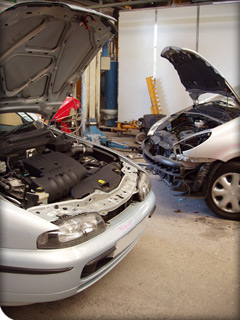
 |
|||||

CASE STUDY TWO Advance brought a large independent bodyshop improved reliability as well as a new opportunity to radically improve their profits through better reporting, parts management and improved shopfloor productivity. Background An independent bodyshop based in the South of England was processing around 90 jobs per week and installed Advance as a replacement for their outdated management system. How Advance helped The first difference the business noticed was the lack of downtime due to the fact that Advance was significantly more robust and reliable than the previous system. After the initial period of settling in, the management team began to fully exploit the functionality of Advance. They started with the parts department. The Advance parts module allows complete control of this important area of profitability. Parts can be fully tracked: full information on parts ordered, received, returned and invoiced is available, including wastage analysis and supplier performance reports. The strength of the audit trail led to a decrease in uninvoiced parts and sundries by over £2000 per month. Next they looked at their workshop efficiencies. Advance was used to run a daily report showing the performance of individual estimators. This was automatically emailed to each of the estimators each day. The General Manager then reviewed their performance benchmarking them against each other. The greater information allowed him to introduce a performance bonus. Over 6 months, this led to an average increase of 30 minutes labour sale per job, which meant a saving of £3,500 per month. The Advance Shop Floor Data Capture system reports provided clear insight into workshop efficiencies. On the basis of this information, changes in working practices were introduced that increased capacity by more than 5%. Advance’s proactive workflow features allowed the managers to see exactly where the repair cycle was being held up. Instant alerts of delays and the active prompts from the Advance system (which alert managers and operatives in the next stage of the process that a car is ready to move on) meant that staff could be kept more productive for longer periods whilst managing overtime costs more efficiently. Results • Decreased parts wastage meant an increase in profits of £ 25,000 pa This bodyshop has found its initial investment in Advance has been recovered through increased profits in a few months. |